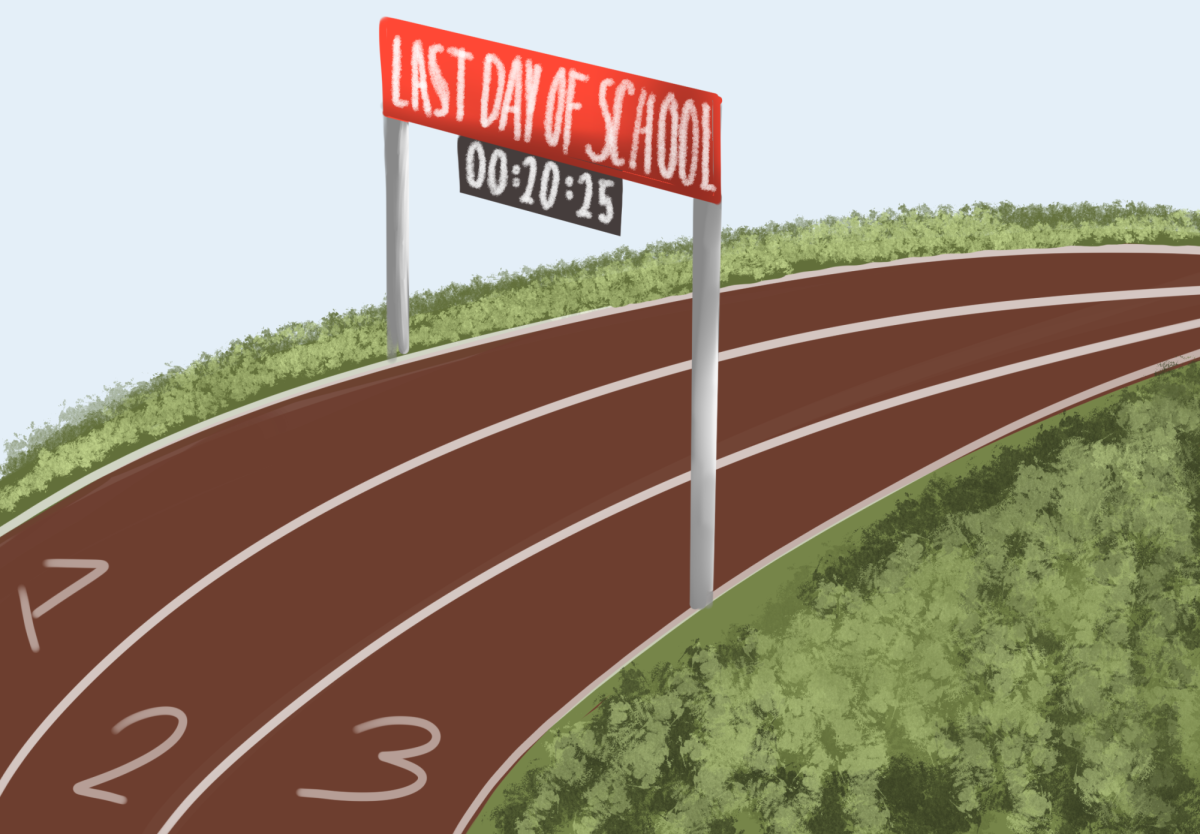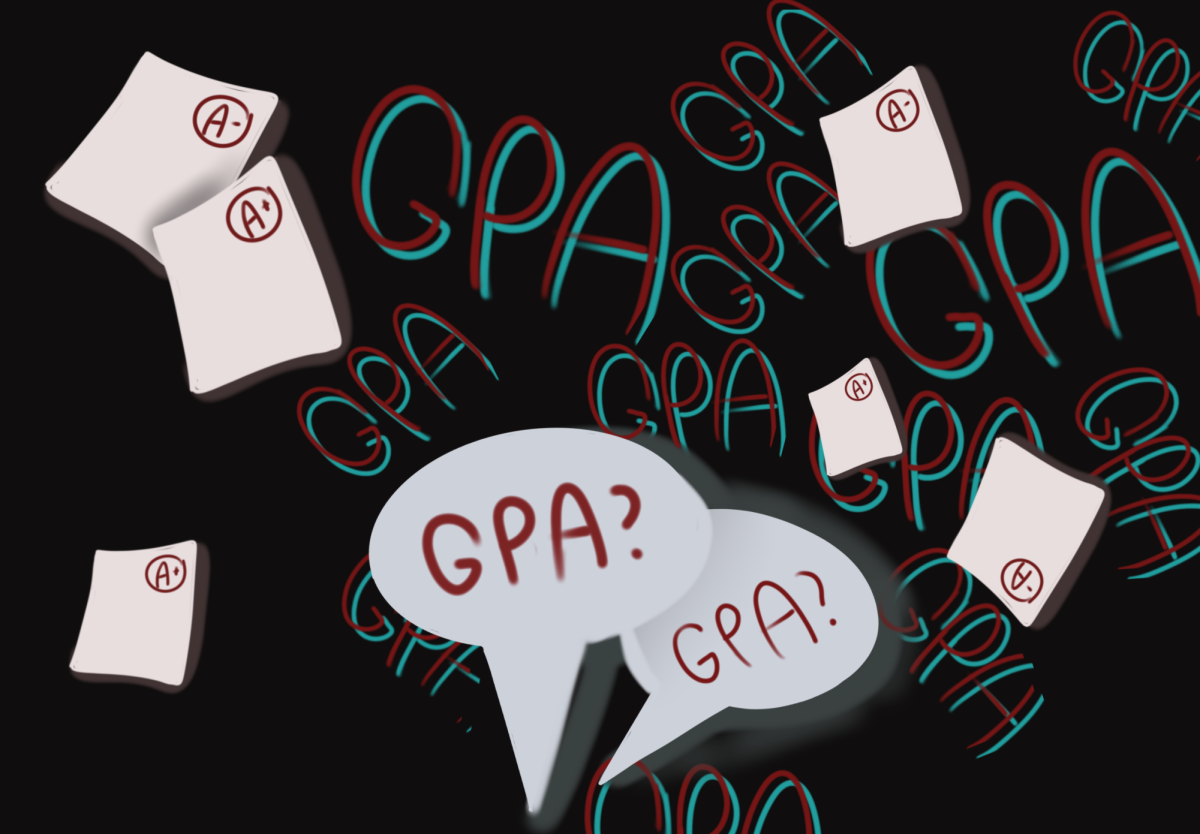Every school night, the clock strikes midnight, and the freshmen and sophomores scramble to finish their work before the WiFi cutoffs, losing access at 10:30 p.m. and 11:30 p.m. respectively. While the policy intends to promote healthier sleep schedules, many students argue that it instead hinders their ability to complete schoolwork efficiently.
For many students, the WiFi cutoff isn’t a nudge toward healthier sleep, but an obstacle preventing them from finishing their work. Alex Heflin ’27, a sophomore, expressed frustration over the system, calling it "completely hindering." He described himself as a late-night thinker who struggles to be productive during designated study hours. “I don’t do work well during study hall. I do my homework from 11 p.m. to 2 a.m., and the cutoff is almost killing my grade,” Alex said. “I have to either squeeze it in the morning or wake up early, but I can’t sleep before 1 a.m.,” he continued. Alex isn’t alone. Many students complain that the study hall, intended as a dedicated homework period, often isn’t as productive as the Loomis administration hopes. Between slow WiFi speeds during peak hours and distractions in dorm spaces, some students find themselves unable to complete their work until later in the evening. When the internet suddenly cuts off, they are left scrambling. “I was unable to complete multiple math assignments because of the cutoff,” Alex added, “it just piles on pressure and builds stress, which makes it even harder to sleep.” Similarly, Dean Sontag ’27 expressed his concerns, “The Wi-Fi infrastructure is wildly outdated,” Sontag said. “The speeds are laughably slow, especially on the weekends. I’ve found myself using my cellular data because the school’s Wi-Fi is unreliable. I’ve even had assignments submitted late because of the connection issues.”
The students also acknowledged the intention behind the WiFi policy but questioned its effectiveness. Beyond the timing, Dean was critical of the policy’s overall design. “The idea behind it is good, but it’s a very arbitrary and poorly implemented system. If we’re really trying to promote better sleep, we shouldn’t have a cutoff. Instead, we should focus on managing workloads. If students aren’t sleeping enough, that’s not a student problem—it’s a teacher problem.” Moreover, students argue that while the goal is to encourage sleep, the reality is that many students turn to cellular data as a workaround. This alternative, however, is not accessible to everyone. “Some students don’t have unlimited data or a hotspot, so it’s unfair to those who rely solely on school WiFi,” Alex mentioned.
The debate also touches on time management. Some students admit that they could plan their workload better but argue that academic rigor often makes that difficult. Between sports, extracurriculars, and classes, sometimes students are unable to start homework until late at night. Sometimes, it’s not about procrastination. Sometimes, there’s just too much to do. Dorm faculty, on the other hand, emphasized how the WiFi cutoff was a necessary safeguard. Kendall Downend, science faculty and dorm faculty member, noted that some students struggle with self-regulation, and having a firm internet cutoff can help them disengage. “I think it’s a clear line for students who might struggle to control their impulses late at night,” said Ms. Downend, “It’s good to not have anything fun to do, so they kind of have to sleep. Sleep is so important for teenagers.” When asked about students who claim the cutoff forces them into inefficient study habits, Ms. Downend pointed to time management as a key factor: “What I observe more frequently is students not doing homework at designated homework times.” She added, “It’s not to say that managing everything is easy, but sometimes, late-night studying is a result of choices made earlier in the day.” She also expressed concern over what would happen if the cutoff were removed entirely. “Frankly, I think it would result in less sleep,” she said, “If students are having trouble staying on task during study hall, they’d probably have similar issues late into the night.”
Both some students and teachers do find this policy not quite addressing its main goal of having students be well-rested. Dean, for example, argued that the policy is more about appeasing parents than addressing the real issue. “This feels like the school responding to parents saying, ‘My kid isn’t getting enough sleep,’ without actually fixing the problem,” he said. “People come to boarding school to learn how to manage themselves. If we’re going to coddle students like this, we might as well hold their hands the whole way.”
Sam Lagasse, English Faculty and Dorm Head of Kravis Hall, shared a similar sentiment. “Students will always find ways to use their time as they see fit. The idea that shutting off Wi-Fi will magically make them go to bed is optimistic at best. It’s about teaching them balance, not cutting them off from resources,” he said.
While the debate continues, some have proposed a compromise: an academic-only WiFi option after cutoff hours. This system would allow access to essential platforms like Canvas, Veracross, and Outlook while restricting entertainment websites and gaming services. Ms. Downend found this idea potentially viable but difficult to implement. “I’m not sure what would go into that, but maybe there could be a system where students get a limited number of ‘emergency WiFi hours’ that they can use when necessary,” she suggested.
The debate over the Wi-Fi cutoff wasn't just about access to the internet, but also trust, responsibility, and the students’ well-being. If the school truly wants to improve students’ sleep and mental health, it may need to rethink its approach. Instead of cutting students off, a better solution might be to address the root causes of stress: workload, time management, and outdated infrastructure.
Mr. Lagasse, recognizing the concerns on both sides, encouraged open dialogue: “We understand the frustration and want to work toward a solution that balances focus, access, and well-being. Students should keep sharing their perspectives—constructive feedback helps us improve.”
Until something changes significantly, however, students will continue to find ways to work around the restrictions—just as they always have.
Categories:
Just How Effective Are WiFi Cutouts?
Calvin Weng ’27, Staff Writer
March 1, 2025
More to Discover






